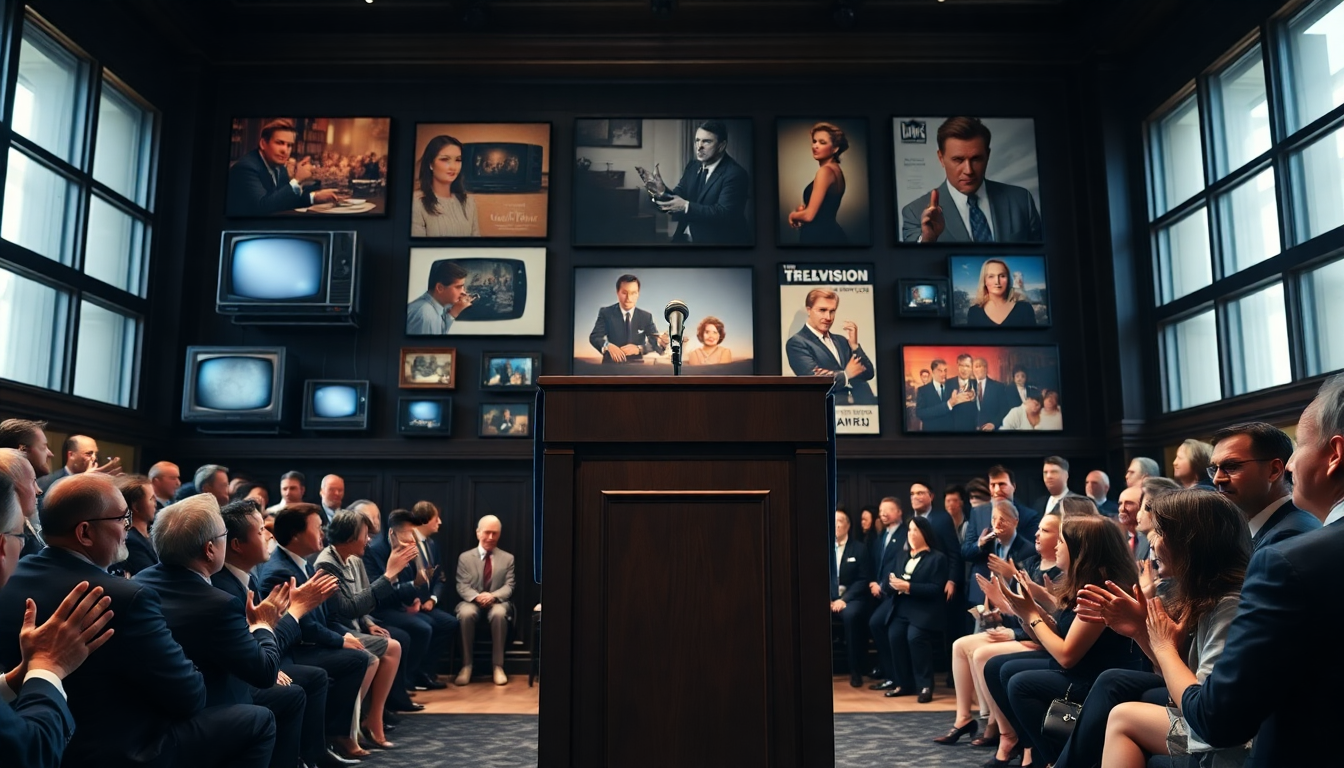Table of Contents
As the television industry navigates a wave of unprecedented changes, Conan O’Brien, a true veteran of late-night TV, recently opened up about his thoughts on this shifting landscape. Accepting a prestigious award at the Television Academy Hall of Fame, he didn’t shy away from addressing the fears many have about the future of television—after all, these concerns are quite real.
But amidst the uncertainty, he also radiated a sense of optimism. He suggested that while the formats we know might evolve, the fundamental elements of connection and creativity will always remain at the heart of what we love about TV.
The Current Landscape of Television
O’Brien pointed out in his speech that the traditional television format we’ve relied on for nearly 80 years is undergoing a seismic shift. With the rise of streaming services, our viewing habits are changing dramatically, which understandably leads to some apprehension about what’s next for good old-fashioned TV.
But here’s the silver lining: O’Brien sees this transition as a fertile ground for creativity. He celebrated the success of fresh new series like “Abbott Elementary,” “Hacks,” and “I Think You Should Leave With Tim Robinson,” all of which have captured audiences’ hearts and shown that innovative storytelling is very much alive in Hollywood.
Isn’t it exciting to think about what’s next?
With nearly three decades in late-night television under his belt—hosting shows like “Late Night With Conan O’Brien,” “The Tonight Show With Conan O’Brien,” and “Conan”—O’Brien reflected humorously on how late-night TV was once just a distraction for college students before the internet took over.
Despite the shifting sands of the industry, he reassured the audience that talented voices, like Stephen Colbert, will continue to shine in these new formats, adapting to what today’s viewers want. Who wouldn’t want to see how these changes unfold?
The Importance of Storytelling
At the core of O’Brien’s message is a timeless truth: no matter how technology evolves or how formats change, the heart of television is still all about compelling storytelling and authentic performances. He playfully mused about the potential absurdity of future TV formats, making it clear that, at the end of the day, it all boils down to the quality of the story and the integrity of the creators behind it. This perspective underscores a crucial point: while the medium may shift, the essence of what makes great television will always endure. Don’t you think that’s what keeps us tuning in?
When accepting his award alongside industry heavyweights like Viola Davis and Ryan Murphy, O’Brien expressed a blend of humility and gratitude. He viewed this recognition as a significant milestone in his career, a nod to his contributions to the television landscape. But he also emphasized the importance of staying grounded and driven, echoing his grandfather’s wisdom about seizing every opportunity and striving for more. How inspiring is that?
Challenges and Responsibilities Ahead
Ryan Murphy, also honored at the event, echoed O’Brien’s concerns about the challenges facing the television industry today. He spoke openly about the threats to creative expression in today’s socio-political climate, where rights are increasingly under pressure. Murphy committed to continuing his advocacy for marginalized voices, highlighting the responsibility that creators have to ensure inclusivity and representation in their work. Isn’t it crucial for creators to step up in these times?
The intersection of creativity and social responsibility is a theme that resonates deeply in today’s television landscape. As the industry adapts to emerging realities, the role of content creators becomes even more vital. The reflections from O’Brien and Murphy remind us that even when the going gets tough, the pursuit of meaningful storytelling and a commitment to diverse representation must always thrive. What stories do you think need to be told next?





